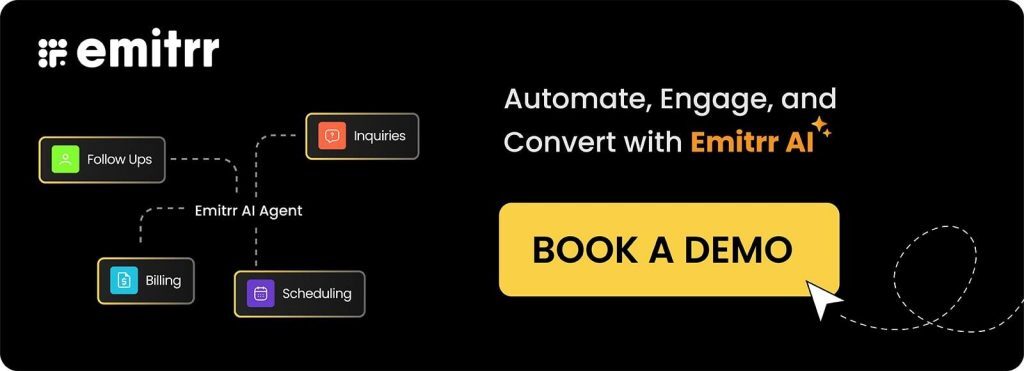Medical History Form
What is Medical History Form?
A simple medical history form PDF is essentially your patient’s comprehensive healthcare record, documented. It is what doctors use to quickly understand their health background, such as past illnesses, surgeries, allergies, medications, and more, so they have all the information they need before having to ask a hundred questions.
Purpose of the Medical History Form
A printable medical history form template saves time and effort. It helps you know your patient before the appointment, so you can focus on relevant concerns, spot health risks early, and provide better, more personalized care. This free fillable medical history form is among the most efficient online patient forms to introduce into your daily workflow, helping streamline patient intake and build a stronger understanding of a patient’s healthcare journey from the beginning. Using this family medical history form PDF free download helps avoid missing key details. It also reduces manual errors, keeps records organized, and maintains HIPAA-compliant communication.
Key Components of a Medical History Form
This online medical history form PDF free download gives you all the essentials you need to understand your patient’s health background at a glance. This patient history form template includes key fields such as:
- Patient Information: Who the patient is, their name, contact details, date of birth, and other relevant information.
- Reason for Visit: What brings the patient in today, whether it is a symptom, concern, or follow-up.
- Past Medical History: This covers any past illnesses, chronic conditions, hospital stays, or treatments received.
- Surgical History: Details on any surgeries the patient has undergone in the past.
- Family Medical History: Provides information about health conditions present in immediate family members.
- Social History: Notes lifestyle habits like smoking, alcohol use, physical activity, and occupation.
- Allergies: Mentions any known allergies to food, medication, or environmental factors.
- Current Medications: Includes all medications currently being taken, including prescriptions and supplements.
- Vaccination Records: Shows which vaccines have been administered and which may still be due.
- Insurance Information: Includes the patient’s insurance provider, policy number, and coverage details for billing and administrative use.
Digitize Your Medical Forms with Emitrr
Still using paper forms at the front desk? That is eating into valuable hours of your clinical practice. Printed forms can be messy, time-consuming, and error-prone. Patients filling out forms in a rush just before their appointment, illegible handwriting, lost paperwork, and manual data entry. It doesn’t have to be this hard!
Let Emitrr smartly handle your medical forms. You can easily make this form a part of your day-to-day practice by swapping out stacks of paperwork for digital medical forms. Emitrr bridges the gap between healthcare and patient communication. It gives practices one simple way to manage medical forms, online appointment scheduling, automated reminders, and patient follow-ups together.
You can securely share these medical forms through a quick SMS. Patients complete the form at their convenience, eliminating time spent filling out forms in the waiting room.
Emitrr integrates with over 500 EMR and EHR systems, allowing patient responses to be directly updated to their records. This helps reduce no-shows, avoids last-minute form-filling at the front desk, and keeps your workflows timely. You can choose from our 100+ downloadable medical form PDF templates or take full control by customizing them with your branding, white labeling, and fields that suit your practice best. Emitrr AI for healthcare brings all the advanced communication features your team needs into one place, making it easier to manage forms and stay connected with your patients.
Start your subscription to unlock all the robust features that make handling medical forms effortless and your healthcare communication faster and more effective.

FAQs
A simple medical history form PDF free download is a document used to collect important information about a patient’s past and current health. It usually includes details such as past illnesses, surgeries, allergies, medications, and family health history.
Yes, an electronic medical history form template is considered a legal document once it becomes part of a patient’s medical records. It must be stored and handled securely, as it contains personal health information.
This refers to the process of recording a patient’s health history, including any conditions, treatments, allergies, or surgeries. It helps healthcare providers give accurate and safe care.
A medical history form PDF free download typically includes your details, current medications, past illnesses or surgeries, allergies, family health history, and lifestyle habits like smoking or alcohol use. You can download a free medical history form PDF on Emitrr.
The main purpose of a health history form is to help healthcare providers understand a patient’s background so they can make better decisions about diagnosis, treatment, and care.
An online medical record form PDF usually contains personal details, medical history, current complaints or symptoms, diagnosis, treatment plans, test results, and notes from healthcare providers.
Still Using Paperforms?
Check out what Emitrr's digital forms can do for you! Reduce wait times, ensure compliance, and boost the efficiency of your medical practice with digital forms. Watch the video to know how!

 4.9 (400+
reviews)
4.9 (400+
reviews)